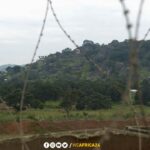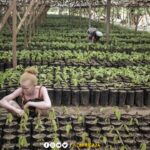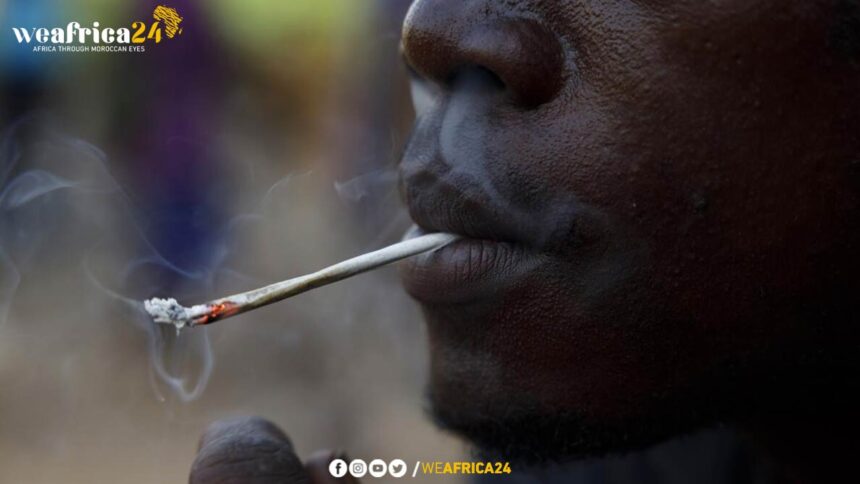A devastating synthetic drug is wreaking havoc among the nation’s youth. In the trash-strewn alleys of Freetown’s Bombay suburb, boys and young men slump in the grip of addiction. With healthcare services severely limited, one frustrated community has taken matters into its own hands, establishing a volunteer-run treatment center that sometimes employs harsh measures.
This grassroots initiative began over the past year when a group of locals tried to help a colleague’s younger brother break free from the grip of a drug known as kush. After persuasion and threats failed, they resorted to locking him in his room for two months. Remarkably, the approach worked. The young man returned to university and expressed gratitude for the intervention.
“The only time I left the room was to go to the bathroom,” recalled 21-year-old Christian Johnson. His determination to overcome the addiction was fueled by thoughts of his family, the fear of dropping out, and the abandonment by many of his friends.
Buoyed by this success, the volunteers expanded their efforts, taking over an abandoned building to create a makeshift treatment center. At families’ requests, they sometimes seize individuals and chain them to prevent escape—a method reminiscent of practices once used by the country’s only psychiatric hospital. The facility offers little comfort; there are no cushions on the concrete floors and walls, leaving individuals to confront their cravings head-on.
To date, the Bombay Community has treated 70 to 80 people, according to the volunteers. Although they displayed the chains used in extreme cases, no one was chained during a recent visit. The youngest person treated was a 13-year-old boy, sent by his father, Gibrilla Bangura, a college lecturer. “I was very angry and wanted nothing to do with him,” Bangura admitted. “I am very grateful to these men and women for their role in helping my son.”
President Julius Maada Bio has recognized the severity of the crisis, declaring war on Kush and labeling it a national threat. This year, he launched a task force on drug and substance abuse, promising a comprehensive government approach focused on prevention and treatment, involving both law enforcement and community engagement.
“We are witnessing the destructive consequences of kush on our country’s very foundation, our young people,” President Bio stated in April.
The true composition of kush remains elusive. This synthetic drug, a derivative of cannabis mixed with substances like fentanyl, tramadol, and even chemicals like formaldehyde, often leaves users lethargic, desperate, and ill. In some areas, reports suggest people have resorted to digging up graves to use bones laced with embalming chemicals in their drug mixtures.
Daphne Moffett, the director of the U.S. Centers for Disease Control and Prevention in Sierra Leone, highlighted the challenge of responding to this crisis due to the drug’s ever-changing composition. “Before appropriate interventions can be developed, we need to know what materials are in kush,” she explained.
Although the government does not release official figures on kush-related deaths or hospital admissions, Ansu Konneh, the director of mental health at the Ministry of Social Welfare, reported a sharp increase in kush addiction cases at Sierra Leone’s sole psychiatric hospital since 2022.
As Sierra Leone grapples with this synthetic drug epidemic, communities and the government alike continue to seek effective solutions to save the country’s youth from this insidious threat.







